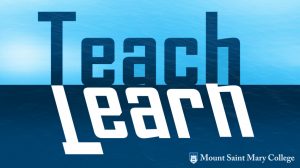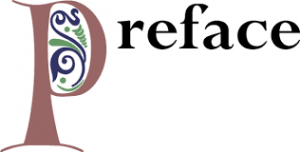INTRODUCTION: A CALL FOR CONTEMPLATIVE PEDAGOGY
“Study: one must truly learn how to do it.”—Fr. Guido Vergauwen, OP
Everyday mitigating factors, such as distractions, pressures, insecurities and anxieties, can become manifest in the teaching-and-learning classroom climate on the parts of both instructors and students and, thus, can exacerbate the challenges that all already face in that place. However, the philosophy and praxis of contemplative pedagogy allows everyone to focus on the present and engage in the moment in order to address whatever needs tending to in that instant.
The practices of contemplative pedagogy creates a space within one’s intellectual and emotional reactions to course content and/or whatever informs one’s engagement therein—be it a spoken or written remark, a difficult topic, or an emerging theme. These practices bridge reflection (or contemplation), as the serious consideration of one’s thoughts, sentiments, and emotions, with metacognition, which highlights the awareness and understanding of one’s thought processes in the development of one’s skills sets. Integrating reflection with metacognition holds the potential in creating a rich teaching-and-learning environment.
AN ANALOGY: TARGET PRACTICE
In order to create and cultivate this kind of climate and culture, I draw upon Elizabeth F. Barkley and Claire H. Major’s analogy of target practice, in Learning Assessment Techniques (2015). Here, Barkley and Major differentiate Goals (broader plans) and Objectives (steps, methods, and tools in achieving goals) from Outcomes (the results from the execution and delivery of objectives)—all of which are applicable outside of higher education.
Teaching & Learning Goals: See the target.
Teaching & Learning Objectives: Aim for the target.
Teaching & Learning Outcomes: Hit the target.
While I can establish these determinants for any class in which I find myself, what is essential is that the students articulate their own determinants for any class in which they find themselves with me. Within the first week of classes, I deploy a set of assignments that connect reflection with metacognition:
- a questionnaire for creating a climate for teaching and learning that asks the students various questions that account for best and worst practices on the parts of students and instructors;
- a set of diagnostic paragraphs that require the students to reflect on their perceptions of self and others, and study habits and lifestyle issues that may affect their course;
- guidelines that determine what failure and success looks and feels like from the students’ perspectives.
Here, allow me to extend Barkley and Major’s useful metaphor of target practice in emphasizing that the practice itself anticipates two goals: cultivating a sense of discipline through practice and hitting the target. In her Faculty Focus essay, “Enhancing Learning through Zest, Grit and Sweat,” Lolita Paff applies these terms to the teaching and learning opportunities and practices that inform our pedagogy (November 14, 2018).
- zest equates with the cultivation of curiosity;
- grit represents the tenacity in meeting a challenge;
- sweat embodies the work ethic embodied in the intellectual labor itself.
For instructor and student alike, motivation itself informs zest, grit and sweat as part and parcel of one’s metacognitive reflection (or reflective metacognition) when assessing one’s failure or success in a course.
A TIME FOR CONTEMPLATION: PANDEMIC PEDAGOGY DURING COVID-19
“Listening is an encounter. And an encounter is like a crossroads—our own and that of the person who is listening to us.”—Sr. Jeanne-Marie de Menibus
Throughout the course of a semester, I adopt reflection with metacognition in order to gauge where we are with where we need to be by the end of the semester. On any given day, I check-in with the students to ask the following formative questions:
- What works?
- What does not work?
- What needs to be amended, revised, and/or updated altogether?
However, this past March of 2020, the auspicious timing of COVID-19 with Spring Break necessitated The Pause and The Pivot in adapting our instructional delivery to the virtual arena—Pandemic Pedagogy—across all grade levels in the United States. Here, allow me to borrow the language of public health that guides all of us in this pandemic: the above questions, so typical for me at this juncture in every semester, compelled me to truly cull and glean—triage—what was and was not essential in the course in order to gauge where all of us—students, colleagues, family and friends, and myself—were at that time. Always, first and foremost, the need for authentic communication—a check-in—fosters a mindset that encourages simply asking questions, in a classroom, in a meeting, in a heightened conversation even as it also necessitates a slowing down to hold still and listen in contemplation.
Requisite course evaluations function as a Pandora’s Box of sorts insofar as their usefulness as authentic assessment tools in shaping one’s pedagogy while holding one accountable for their philosophy and praxis. Typically, and to counterbalance course evaluations, I deploy a closing commentary that asks student to reflect upon the course. This reflection, approached as a professional letter to me, runs the gamut of prompts that solicit specific pieces of information: the reading selections, the various assessment tools, e.g. exams (instructor- and student-created), writing assignments (low- and high stakes), and their own thoughts and suggestions for future students.
At the close of this semester, and in emulating practices across other American colleges and universities, I added a few formative questions in order to enhance the processes of metacognitive reflection (or reflective metacognition) in the following:
- involvement or engagement
- motivation or passion
- a literacy skill honed throughout the semester
- a new technological, practical, or communicational skill honed (in the virtual classroom)
- a practice, an activity, or an idea for me to sustain (in an actual or virtual classroom)
CONCLUSION: THE GREAT PAUSE
How does one protest a problem without first mentioning it?—A Zen Koan
In the middle of difficulty lies opportunity.—Albert Einstein
In discerning what is and is not essential in a course, in going remote these days, the “business as usual” approach strikes me as intensely odd because The Old Normal was not always working, was not always effective, and was not always … good. Living in The New Normal has exposed the underpinnings and trappings of The Old Normal in such startling ways that for some of us tracking a moving set of targets—the curves of a pandemic, work-at home adjustments, updates in our pedagogical practices through technology—necessitates holding still in contemplation.
WORKS CITED
de Menibus, Jeanne-Marie, OP. “A Contemplative Listens and Teaches.” Towards the Intelligent Use of Liberty: Dominican Approaches in Education. Edited by Gabrielle Kelly, OP, and Kevin Saunders, OP. 2014. 99-102.
Vergauwen, Guido, OP. “The Charism of Study in the Education of Dominicans.” Towards the Intelligent Use of Liberty: Dominican Approaches in Education. Edited by Gabrielle Kelly, OP, and Kevin Saunders, OP. 2014. 89-98.

